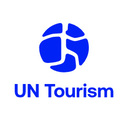UNWTO and WTTC present Open Letter to Malta Prime Minister
The World Tourism Organization (UNWTO) and the World Travel and Tourism Council (WTTC) presented the Open Letter on Travel and Tourism to the Prime Minister of Malta, Joseph Muscat. The Open Letter outlines tourism's value as one of the world's largest generators of jobs and a powerful driver of socio-economic growth and sustainable development. To date, the Open Letter has been received by 89 Heads of State and Government.
UNWTO Secretary-General Taleb Rifai congratulated Malta on its good tourism results and thanked the Prime Minister for placing tourism high in the agenda of the European Union during its current presidency. "Malta is playing a critical role in ensuring that tourism is recognized for the value it has for the economy and employment in the EU," said Mr Rifai.
The Prime Minister expressed his full support to the sector as a key economic activity for Malta, one of the main drivers of economic growth, creation of quality jobs and overall improvement of Malta's social fabrics. He said that the Maltese Government has for the last years adopted a new tourism strategy and that a firm commitment to sustainable development is currently high on the agenda. Dr. Muscat reaffirmed that tourism is much more than climate, cultural activities and historical sites, more even than new niches such as diving tourism, conferences and events, wedding tourism, cruise and luxury accommodation. "It is actually one of those areas through which we believe that wealth percolates to all sections of society in a direct manner," said the Prime Minister.
David Scowsill, President and CEO of the World Travel & Tourism Council, said: "Travel and tourism contributed 2,425.5 million euros (2,706.1 million USD) to Malta's GDP, which is 26.7% of the country's total GDP, and supported 27.8% of total employment in the country. Our sector is a stimulator of economic growth and a creator of jobs. We commend the Maltese government for its commitment to travel and tourism, and its continuous efforts to drive growth while preserving the assets the beautiful island has to offer."
Rifai also met the President of Malta, Marie-Louise Coleiro Preca, who during the meeting reiterated her belief that the tourism sector has the ability to build peace to create prosperity.
Both meetings were held coinciding with a UNWTO Masterclass on 'Attracting Chinese Tourism to the Mediterranean Countries' and an event on 'Enhancing Europe's Tourism Competitiveness through New Products' organized in the framework of the Maltese Presidency of the EU.
On the occasion, UNWTO welcomed six Maltese companies to sign the Private Sector Commitment to the Global Code of Ethics for Tourism: Air Malta, Federation of Associations of Travel and Tourism Agents (FATTA); Gozo Tourism Association; Malta Hotels and Restaurants Associations (MHRA); Malta Chamber of Commerce, Enterprise and Industry; and Valletta Cruise Port. By adhering to the Code, signatories commit to implementing and promoting its principles in their business strategies and operations. To date, 514 companies and associations from 68 countries have joined this Commitment.
About UN Tourism
The World Tourism Organization (UN Tourism) is the United Nations agency responsible for the promotion of responsible, sustainable and universally accessible tourism.
As the leading international organization in the field of tourism, UN Tourism promotes tourism as a driver of economic growth, inclusive development and environmental sustainability and offers leadership and support to the sector in advancing knowledge and tourism policies worldwide.
Our Priorities
Mainstreaming tourism in the global agenda: Advocating the value of tourism as a driver of socio-economic growth and development, its inclusion as a priority in national and international policies and the need to create a level playing field for the sector to develop and prosper.
Promoting sustainable tourism development: Supporting sustainable tourism policies and practices: policies which make optimal use of environmental resources, respect the socio-cultural authenticity of host communities and provide socio-economic benefits for all.
Fostering knowledge, education and capacity building: Supporting countries to assess and address their needs in education and training, as well as providing networks for knowledge creation and exchange.
Improving tourism competitiveness: Improving UN Tourism Members' competitiveness through knowledge creation and exchange, human resources development and the promotion of excellence in areas such as policy planning, statistics and market trends, sustainable tourism development, marketing and promotion, product development and risk and crisis management.
Advancing tourism's contribution to poverty reduction and development: Maximizing the contribution of tourism to poverty reduction and achieving the SDGs by making tourism work as a tool for development and promoting the inclusion of tourism in the development agenda.
Building partnerships: Engaging with the private sector, regional and local tourism organizations, academia and research institutions, civil society and the UN system to build a more sustainable, responsible and competitive tourism sector.
Our Structure
Members: An intergovernmental organization, UN Tourism has 160 Member States, 6 Associate Members, 2 Observers and over 500 Affiliate Members.
Organs: The General Assembly is the supreme organ of the Organization. The Executive Council take all measures, in consultation with the Secretary-General, for the implementation of the decisions and recommendations of the General Assembly and reports to the Assembly.
Secretariat: UN Tourism headquarters are based in Madrid, Spain. The Secretariat is led by the Secretary-General and organized into departments covering issues such as sustainability, education, tourism trends and marketing, sustainable development, statistics and the Tourism Satellite Account (TSA), destination management, ethics and risk and crisis management. The Technical Cooperation and Silk Road Department carries out development projects in over 100 countries worldwide, while the Regional Departments for Africa, the Americas, Asia and the Pacific, Europe and the Middle East serve as the link between UN Tourism and its 160 Member States. The Affiliate Members Department represents UN Tourism's 500 plus Affiliate members.
Rut Gómez Sobrino
Principal Media Officer
(+34) 91 567 81 60
UN Tourism
